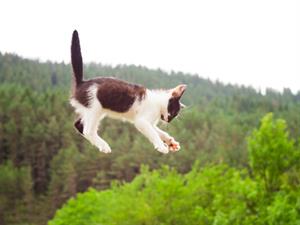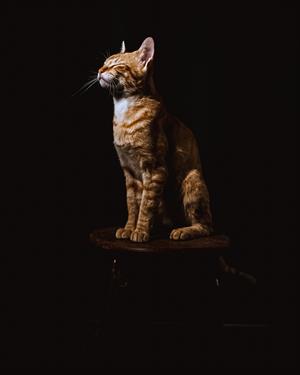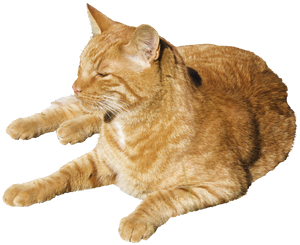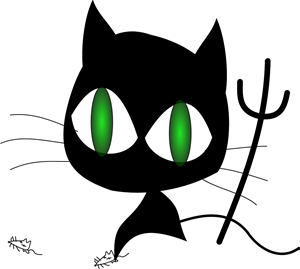
PUMPA - SMART LEARNING
எங்கள் ஆசிரியர்களுடன் 1-ஆன்-1 ஆலோசனை நேரத்தைப் பெறுங்கள். டாப்பர் ஆவதற்கு நாங்கள் பயிற்சி அளிப்போம்
Book Free Demo"Macavity: The Mystery Cat" is written by T. S. Eliot. It is taken from "Old Possum's Book of Practical Cats", a collection of playful, light poems.
The speaker introduces Macavity to the readers. Macavity, as the speaker states, is a mysterious cat. He is also a master criminal. Moreover, like any notorious criminal, he has a nickname: Hidden Paw. The poem continues to explore and explain why Macavity is called a mystery cat.
Macavity, as stated before, is a master criminal who disobeys the laws enforced in the country. He commits crimes, breaks the rules, and indulges in mischievous activities, but he is so clever that he is never caught.
Macavity, as stated before, is a master criminal who disobeys the laws enforced in the country. He commits crimes, breaks the rules, and indulges in mischievous activities, but he is so clever that he is never caught.

Macavity defies the laws
The police force, referred to as Scotland yard, is constantly confused by his ability to disappear without a trace.
The phrase "Scotland Yard" refers to the police department of London. Hence, it is easy to assume that poem takes place in England.
Also, the speaker describes how the Flying Squad, known for its capability to reach a crime scene quickly, is sad and feels hopeless because Macavity is always faster than the squad. The police and the squad may get to the scene of a crime as quickly as possible, but, to their dismay, Macavity wouldn't be there.
Also, the speaker describes how the Flying Squad, known for its capability to reach a crime scene quickly, is sad and feels hopeless because Macavity is always faster than the squad. The police and the squad may get to the scene of a crime as quickly as possible, but, to their dismay, Macavity wouldn't be there.

The police have a difficult time catching Macavity
The line "Macavity’s not there" is a refrain and is repeated throughout the poem.
The name Hidden Paw is important as it describes the nature of Macavity. The word "hidden" explains the cat's ability to remain hidden from the sight of the police. The word "paw", on the other hand, reminds us that Macavity is an animal, despite him being personified in the poem. Also, the phrase 'hidden paw' may suggest Macavity's ability to move around (using is 'paws') without being seen or heard ('hidden'). Hence, the name ‘Hidden Paw’.
The name Hidden Paw is important as it describes the nature of Macavity. The word "hidden" explains the cat's ability to remain hidden from the sight of the police. The word "paw", on the other hand, reminds us that Macavity is an animal, despite him being personified in the poem. Also, the phrase 'hidden paw' may suggest Macavity's ability to move around (using is 'paws') without being seen or heard ('hidden'). Hence, the name ‘Hidden Paw’.

Paw prints
The second stanza begins with a refrain: "Macavity, Macavity, there’s no one like Macavity". Despite Macavity being a master criminal, the refrain suggests that the speaker is an admirer of his skills. The speaker claims in pride that Macavity is unique and that there is no one like him.
Macavity is known for defying laws, and he has disobeyed every human law, including the law of gravity.
The line is a reference to the cat righting reflex. It talks about the capacity of a cat to position itself as it falls so that it can land on its feet.
Macavity is known for defying laws, and he has disobeyed every human law, including the law of gravity.
The line is a reference to the cat righting reflex. It talks about the capacity of a cat to position itself as it falls so that it can land on its feet.

A cat lands on its feet during a fall
The speaker continues to explain how even a fakir would be taken aback by his ability to tackle a fall. Fakir, who is famed to be a wonder-maker, can never recreate the cat's righting reflex.

A fakir
Here, the speaker has exaggerated the cat’s ability by calling it “powers of levitation”. The speaker doesn’t mean that the cat can stay afloat in the air, but instead, he intends to emphasise the cat’s ability to fall on its feet.

Levitation is an act of something floating in the air
Moreover, Macavity can display more tricks: Macavity can easily disappear into thin air without leaving any trace behind. He may commit a crime, but when you get to the crime scene, Macavity is nowhere to be seen!
You can look for him in the basement or up in the sky, but Macavity is so skilled that he would have vanished from the site.

Macavity is quick to vanish from the scene of crime
The third stanza focuses on the cat's physical appearance. We learn a lot more about Macavity in the stanza.
Macavity is a ginger cat. He is so-called for the colour of his fur: orangish-brown. He is tall and skinny, and his eyes are sunken in. His eyebrows are deeply creased with thinking, and his head is considerably arched. His fur looks dusty as Macavity rarely pays attention to it, and his whiskers are unkempt.
Macavity is a ginger cat. He is so-called for the colour of his fur: orangish-brown. He is tall and skinny, and his eyes are sunken in. His eyebrows are deeply creased with thinking, and his head is considerably arched. His fur looks dusty as Macavity rarely pays attention to it, and his whiskers are unkempt.

Macavity is a tall and thin ginger cat
The above description of Macavity tells us that Macavity is not bothered about keeping or maintaining his appearances. The lines also reveal that Macavity is probably a street cat.
Like any other cat, Macavity tends to swing his head from side to side like a snake. And even though he appears to be sleeping or half-asleep, he is always wide awake. The line shows that Macavity is always on alert and explains his ability to remain hidden from the Scotland Yard.

Though it may seem like he is half-asleep, he is always wide awake
The phrase “with movements like a snake” is an example of simile as the movement of the cat’s head is compared to that of a snake.
The fourth stanza begins with the refrain, "Macavity, Macavity, there’s no one like Macavity". The speaker explains why there is no like Macavity. According to the poet, Macavity is a criminal in the shape of a cat. Furthermore, the speaker calls him a 'depraved monster', meaning he is an animal with no moral values.

Macavity is a devil in the shape of a cat
Though Macavity is known for his ability to remain hidden, it doesn't mean that he is always in his hideout. One is likely to see him in private streets or crowded places, but once his crime is detected, he escapes and becomes the mystery cat, and he is impossible to locate. Thus, again, the stanza ends with the refrain: "Macavity’s not there!".